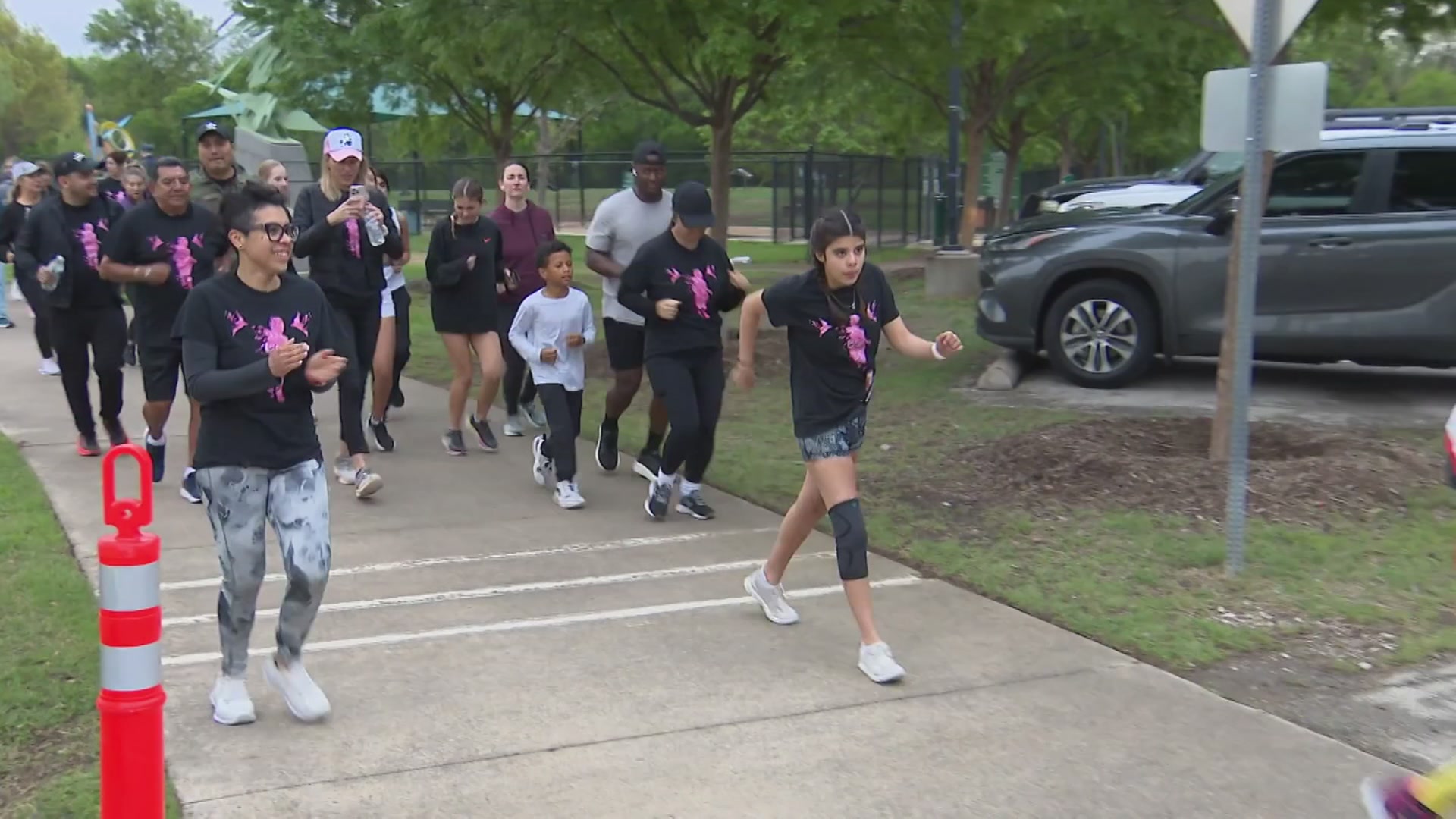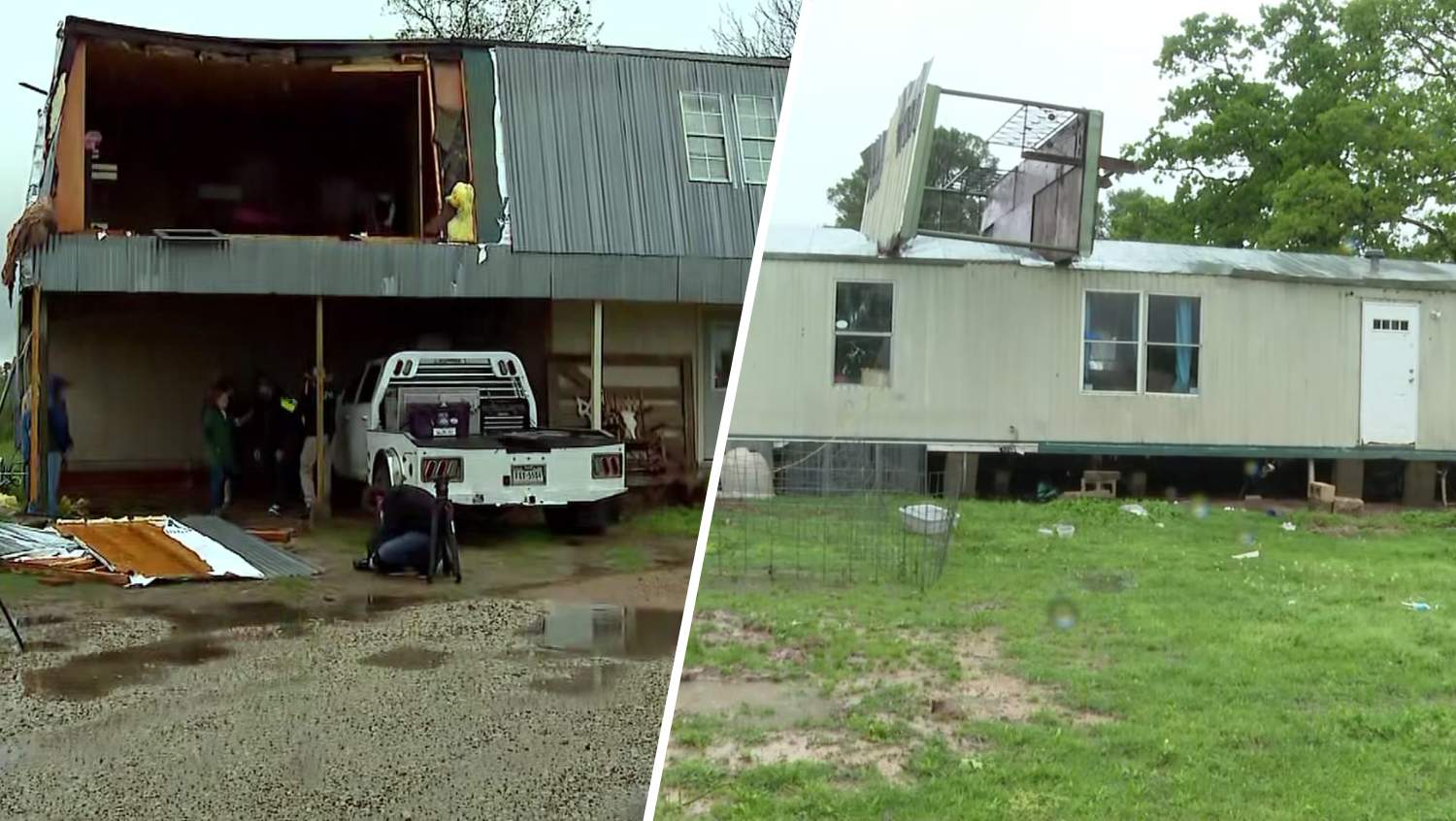When it comes to fire safety, we all know the saying, “Stop, Drop and Roll.” But you may not have heard this one, “Close your bedroom door at night.”
When it comes to fire safety, we all know the saying, “Stop, Drop and Roll.” But you may not have heard this one, “Close your bedroom door at night.”
An NBC 5 investigation found new research showing how sleeping with the bedroom door closed could provide lifesaving time to escape a house fire — a message not often promoted by the nation’s leading fire safety groups.
New research from Underwriters Laboratories Firefighter Safety Research Institute, shows a closed door not only blocks smoke, it can also slow the flow of heat and toxic gases to give people the extra time they need to wake up and get out alive.
“Open door versus closed door could mean life or death,” said UL Director of Firefighter Safety Research, Steve Kerber.
At UL, Kerber has spent years working with along with major U.S. fire departments studying how doors can alter the flow of a fire.
He walked away from those experiments convinced of one thing.
Local
The latest news from around North Texas.
“It’s important that when everyone goes to sleep at night that they sleep with their doors closed,” said Kerber.
Time and time again Kerber said the door not only blocked smoke, it cut off intense heat and toxic gases — buying the extra seconds a person may need to escape a house fire.
“Lives will be saved if more people hear the message to close the door,” Kerber said.

NBC 5 Investigates learned that message is not being widely shared however and that education material from some of the nation’s leading fire safety groups rarely mention sleeping with the bedroom door closed.
The Federal Emergency Management Agency’s U.S. Fire Administration has created a number of fire safety guides for adults and kids. But in most of their tip sheets, there’s nothing about sleeping with a door closed.
NBC 5 Investigates saw only one mention of that on FEMA’s Ready.Gov website. It’s in a long of advice list under the heading “More Fire Safety Tips.”
FEMA said it tested the closed-door message in focus groups and found some people didn’t like it, so they decided not to include it.
In a written response, a spokeswoman said:
“Before we published these materials, we tested them with focus groups and found almost unanimously that the participants would not follow this message. Everyone had important reasons for not wanting to sleep with the door closed, despite the fact it was safer. Some examples were hearing children, knowing what is going on in the house, etc. Our intent was to have messaging that people in the at-risk demographics would receive and act on instead of giving them messages they felt they could pass on. We have learned that we can’t tell our customers everything that we know is important.”
“I understand that you want to hear your kid, you want to be near them, you want to mama bear them and protect them, but it’s actually doing more harm than good if you keep that door open,” said Lexi King, who survived a house fire 11 years ago that killed her parents and brother.
Lexi’s brother always slept with his door open while she kept hers closed. She said the door being closed kept smoke out of her room and gave her more time to wake up and find a way out.
When asked what message she’d share with a safety group not putting the closed-door advisory near the top of their fire safety tips, Lexi said: “Look at where I am right now. And look at what’s not next to me — which is my family members.”
FEMA’s U.S. Fire Administration declined an on-camera interview.
Other safety groups like the National Fire Protection Association said they have not included the closed door message because they think it’s more important to remind people to install smoke detectors, inside and outside each bedroom. But the NFPA said a committee will reconsider adding the language to safety lessons next year.
“Based on this [new] research, and our constantly making sure the messages reflect current information, we will take a look at this,” a spokesperson said in a written statement.
In Fort Worth, the fire department is not waiting.
They plan to start teaching everyone in the city to sleep with doors closed because they’ve been so impressed by the UL research.
“We now have that science … we can say this makes a difference. This is going to give you more time in a house fire,” said Lt. Kyle Faulkner, with the Fort Worth Fire Department.
At their training center the department demonstrated how doors hold back heat and smoke. NBC 5 Investigates suited up for the demo
In a room, they light a fire and close a door. With the door closed, only light smoke enters the room.
But to see how effectively the door is holding back the smoke and heat, they open the door and you see how fast the temperature rises and the smoke increases.
“Now that we open everything up — the smoke has dropped to the floor — now imagine trying to escape this fire with [this] amount of smoke and this amount of heat,” said Faulkner.
During the demo, a thermal imaging camera showed heat glowing as the temperature jumps to more than 200 degrees. Not survivable without protective suits.
“Key message — have smoke detectors in your home — have an exit plan — and close your bedroom door at night,” said Faulkner.
The Dallas Fire Department already tells people to close bedroom doors in some safety materials, including a tip sheeting advising teenagers to sleep with their door closed.
“The more you can have between you and the fire, the safer you'll be,” said Dallas Fire-Rescue spokesman, Jason Evans.
But, firefighters are quick to point out that a closed door does not replace smoke detectors and alarms.
“The bottom line is that closing your door to keep yourself safe does no good if you don't have working smoke detectors and an escape plan,” said Evans.
The Texas State Fire Marshal’s Office also said it talks about the importance of closing doors in all of their fire safety presentations.
And in one state, the fire marshal is taking it a step further. The Tennessee State Fire Marshal recently launched a social media campaign using the hashtag, #CloseTheDoor.
“There literally is not a day that has gone by that I haven't thought of them and their beauty that they brought,” said King.
King believes her family would have wanted her to share the message of how a door gave her the seconds she needed to survive.
“What I had was a closed door. I had oxygen. I had time to collect my thoughts. I had time to prepare myself,” King said.
There’s no national data showing how many people have lived or died in rooms with open or closed doors. Most fire departments across the country don’t collect information that detailed; their main focus is on finding the cause of the fire.
NBC 5 Investigates will continue monitoring education materials to see if more safety groups start adding the “closed door” advisory to their safety messages.



